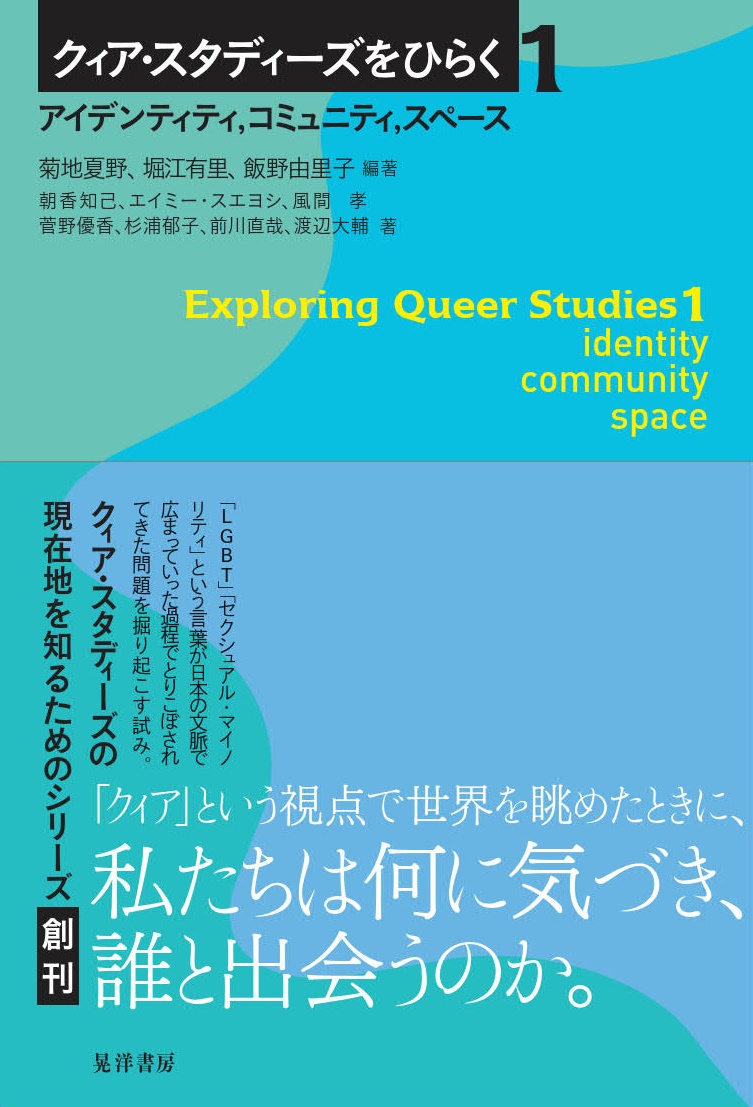
Title
Queer Studies o Hiraku (Exploring Queer Studies 1 - Identity, Community, Space)
Size
274 pages, 127x188mm
Language
Japanese
Released
October 20, 2019
ISBN
9784771032002
Published by
KOYO Shobo
Book Info
See Book Availability at Library
Japanese Page
In English, the word “queer” originally denoted odd, strange, or not normal. This led to the term being historically used in a derogatory or scornful fashion to refer to those who are not heterosexual. This idea of being “not heterosexual” includes not only homosexuality but also other manners of living that are not embedded in the intergenerational chain, such as the embodiment of feminine and masculine qualities that are not deemed appropriate in society. In other words, queer is a word that “others” people who are viewed as “abnormal” and who fall outside of the genders and sexualities that are determined to be “normal.” On the other hand, while simultaneously damaging and degrading the value of their existence, by shaming queers the term had the effect of forcing them to assimilate into society in a normative manner.
It was as part of the new sexual minority’s movement that emerged in the wake of the AIDS crisis, which began in the early 1980s, that the extremely negative nuance attached to this word changed. As part of this movement, some people started reclaiming the hitherto derogatory word “queer” and used it to describe their own way of being. Through this process, the word was adopted as a useful perspective for a type of politics that resists the socially “desirable” norms of gender and sexuality.
In Japan, from the end of the 1990s“queer” came into use and represented a loose grouping of sexual and gender minorities that were subdivded by the abbreviation LGBT (lesbian, gay, bisexual, transgender). At the same time, the ideas and movements that challenge the norms of gender and sexuality have been brought together as part of an academic field known as queer studies, with a great body of research and theory currently accummulating.
The series Exploring Queer Studies attempt to sketch the field as it exists at the current juncture and introduce these accumulated studies into society in a format that will enable those who have not previously engaged with them to do so for the first time. Volume 1 places a focus on one of the most important words in the genre of queer studies, that of “identity,” the basis of which is formed by “community” and “space.” As well as discussing these ideas from a queer perspective, issues that are often missed in the mainstream history of sexual minorities are also addressed. As introduced in this book, through the history of various practical endeavors by sexual minorities, while critically reassessing the “increasing visibility of LGBT people” that has been progressing in Japanese society, we also try addressing how a queer perspective moves beyond the problems of “sexual or gender minorities.”
(Written by IINO Yuriko, Project Research Associate, Graduate School of Education / 2021)



 Find a book
Find a book

